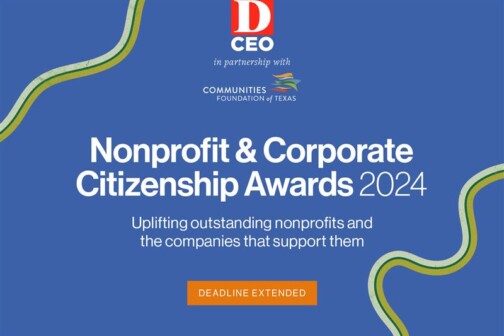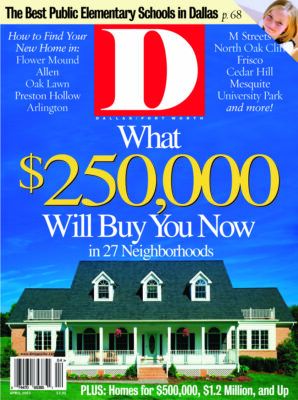Tom Tom and Nikita are booming in the West Village. So why did owners Royce Ring and Russell Hayward call it quits?
 Around 10:15 pm a recent evening, dozens of shivering twentysomethings wait outside West Village’s Nikita, the nightclub of the moment. Inside, co-owner Royce Ring checks out the standing-room-only crowd in the basement: blondes in hip-huggers and 4-inch heels and skinny, t-shirted boys with slicked-back hair. “This is what I live for!” Ring says. “Eight bucks a pop for a martini!” On the other side of West Village, at Tom Tom Noodle House, Ring’s partner, Russell Hayward, is so busy that he is turning away hungry diners.
Around 10:15 pm a recent evening, dozens of shivering twentysomethings wait outside West Village’s Nikita, the nightclub of the moment. Inside, co-owner Royce Ring checks out the standing-room-only crowd in the basement: blondes in hip-huggers and 4-inch heels and skinny, t-shirted boys with slicked-back hair. “This is what I live for!” Ring says. “Eight bucks a pop for a martini!” On the other side of West Village, at Tom Tom Noodle House, Ring’s partner, Russell Hayward, is so busy that he is turning away hungry diners.
Most restaurateurs would trade a limb for one successful hotspot in town, but Ring and Hayward are blessed with two: Tom Tom, the Asian-inspired restaurant, and Nikita, the Russian-themed vodka bar that’s just an olive’s throw away. The duo’s immediate success seems to emanate from their compatibility. Ring, 51, is the creative, design-oriented half; Hayward, 42, keeps his eye on the financials. Both come from restaurant backgrounds, and they invented the concepts for Tom Tom and Nikita together, developing the menus for both restaurants, cooking up sample paninis in the tiny kitchen in Ring’s apartment. They worked together long enough that a friendship was natural—except in their case, the friendship came first. Ring and Hayward have been best friends for 13 years. They have been in business together for one.
“He finishes my sentences,” Hayward says, working late at Nikita on a Saturday night alongside his friend. “They say we’re like a married couple. It’s comforting like that, because whatever I say, he agrees with, and whatever he says, I agree with.”
“We love this,” Ring adds. “We’ve known each other for so long that we know how each other is going to think and react.”
That was in December. On January 2, 2003, exactly one year to the day that they opened their long-awaited business, Ring walked into Hayward’s office, like he did dozens of times each day, and said, “Let’s talk.”
“Sure,” Hayward said.
Ring said he wanted out.
“When I was old enough to see over the counter, I was wiping it down,” Ring likes to say. He, along with his two older brothers, bused tables and washed dishes at the family diner, Camelback Coffee Shop in Phoenix. “I vowed when I was a teenager that I was never going to be part of that business,” he says.
When he was old enough to drive, he told his parents that he would no longer work for free and got a job with a competitor instead. His father gave him one piece of advice: “Don’t ever let anybody down.”
Despite his distaste for the restaurant business, it was all that he knew. To put himself through college at Arizona State University in nearby Tempe, Ring worked as a waiter, bartender, and cook at the Phoenix-based T.G.I. Friday’s clone called Bobby McGee’s. Five years later, with no graduation date in sight, the poli-sci major was offered the manager’s job. “I thought it would be cool until I figured out what I wanted to do.”
And so he stayed, and nine years later he was promoted to executive vice president of operations, overseeing 28 restaurants across the Southwest. In 1988, he packed up his two children and wife and moved to Sydney, to open the first Bobby McGee’s in Australia.
Growing up in Sydney, Russell Hayward began cooking at the age of 4. The middle of seven children born to a pharmaceutical executive and an architectural draftsman, he mostly made desserts for his family and planned to become a chef. By 17, he was taking cooking classes and working at the country club, doing mostly kitchen prep work and sometimes tending bar.
But a chef’s hours are hardly the best for socializing, he soon found out. “You’re like 17, 18, and you’re working Friday and Saturday nights in the kitchen. You get to the parties at 1 in the morning, and all of the good girls are gone. You have no chance. I thought there were better things for me to do than work in front of a stove.”
Hayward found work in the mailroom at the advertising giant Leo Burnett, but he didn’t stay in the basement long. After three and a half months, he was buying media. Eight years later, he was known as one of Australia’s hottest ad men.
So, naturally, when Ring arrived to Aussie-up the Bobby McGee’s concept, he met Hayward and called him for advice. The business relationship quickly developed into something more. “We became great friends—mates—and realized we had a lot of things in common,” Ring says.
Over pints of beer, the pair realized that they both wanted to be out of the corporate environment and back in restaurants again—in the kitchen, greeting guests, crunching numbers late at night. They tried to buy the Bobby McGee’s restaurant from the corporation and run it themselves, but the deal didn’t fly. After Ring completed his three-year contract with McGee’s, he moved back to the United States. Hayward, at 30 and burned out from the advertising business, pursued his second love—rock and roll.
For the next five years, Hayward booked shows for cruise ships, produced concerts for Joe Walsh, and managed Andrew Strong, the lead singer for the Irish movie band The Commitments. He and Ring kept in touch, mostly by phone, and sometimes met to collaborate on projects that Ring was working on. “I would help him problem-solve with his restaurants,” Hayward says. “I would tell him that he needed something, but he already knew. I always called him half my brain.”
In the 1990s, Hayward moved to LA and got married. Ring, now divorced, took a job in Chicago to develop new restaurants before moving to Dallas, where he made a big splash designing new restaurants for Carlson Restaurants Worldwide. The creative spirit behind Samba Room, Fishbowl, and Mignon, Ring was known for his obsession with detail, mixing music himself, picking out the dinnerware, napkins, bathroom fixtures, and wallpaper. His management style was unapologetically dictatorial but ultimately successful.
But he wanted more. So did Hayward, who was now CEO of his own brand creation and design agency and living in a multimillion-dollar manse in the Hollywood Hills with his wife and two children. In 2001, the friends began to make plans to become business partners. On a weekend fishing trip to Cabo San Lucas, they mapped out their new life.
Hayward walked away from $7 million in annual billings and moved his family to University Park. Ring quit his job at Carlson, and on January 2, 2002, they opened Triple R Group in a modest office on Cole Avenue. By June, they had opened Tom Tom in West Village; four months later, Nikita opened in West Village, too. Both places were instantly so popular that it was hard to keep up with demand. Plans were made to develop seven more Tom Toms over the next two years. The partnership, it seemed, couldn’t have been more perfect. But that was before the breakup.
“It’s more like divorce than anything,” Ring says. “No one wants to lose a friendship or put a friendship in jeopardy. This was an agonizing thing.”
Ring won’t share the specifics about the problems that arose between the two, but he alludes to an imbalance of power. “There were challenges about our roles, who does what,” he says. “There were challenges about capitalization and whose role was what relative to that. All of the paperwork has us as equal partners—equal say, equal benefits,” he says. Then he adds, “Power is an interesting thing.”
Money is, too.
Like any divorce, the breakup of Hayward and Ring has turned into a tale of irreconcilable differences, a sort of “he said, he said.” Hayward won’t reveal exactly how much he invested in the company, leaving it at “six figures.” He says Ring didn’t invest a penny, but Ring disagrees.
“Yes, I have money in Triple R,” Ring says recently from Chicago, where he’s already in talks with restaurant developers. “If Russ is suggesting that he put money in Triple R and I didn’t, that isn’t correct. Did I put as much money into this as Russell Hayward? No. But I don’t know that he and I would have been able to do this if one of us didn’t know about the restaurant business.”
Hayward says that the breakup came as a complete shock and says that Ring simply wanted to leave to focus on developing new concepts. “That is not true,” Ring says. “I’m a restaurant guy and have been my whole life.”
Hayward has already secured $2.5 million to expand the Tom Tom concept, as the two friends had planned. This spring, he unveils a new, more Australian-inspired menu by himself.
Dallas-based freelancer Ellise Pierce writes for People, Newsweek, and Jane.
Get our weekly recap
Related Articles
Leading Off (4/16/24)

Deadline Extended: D CEO’s Nonprofit and Corporate Citizenship Awards 2024



